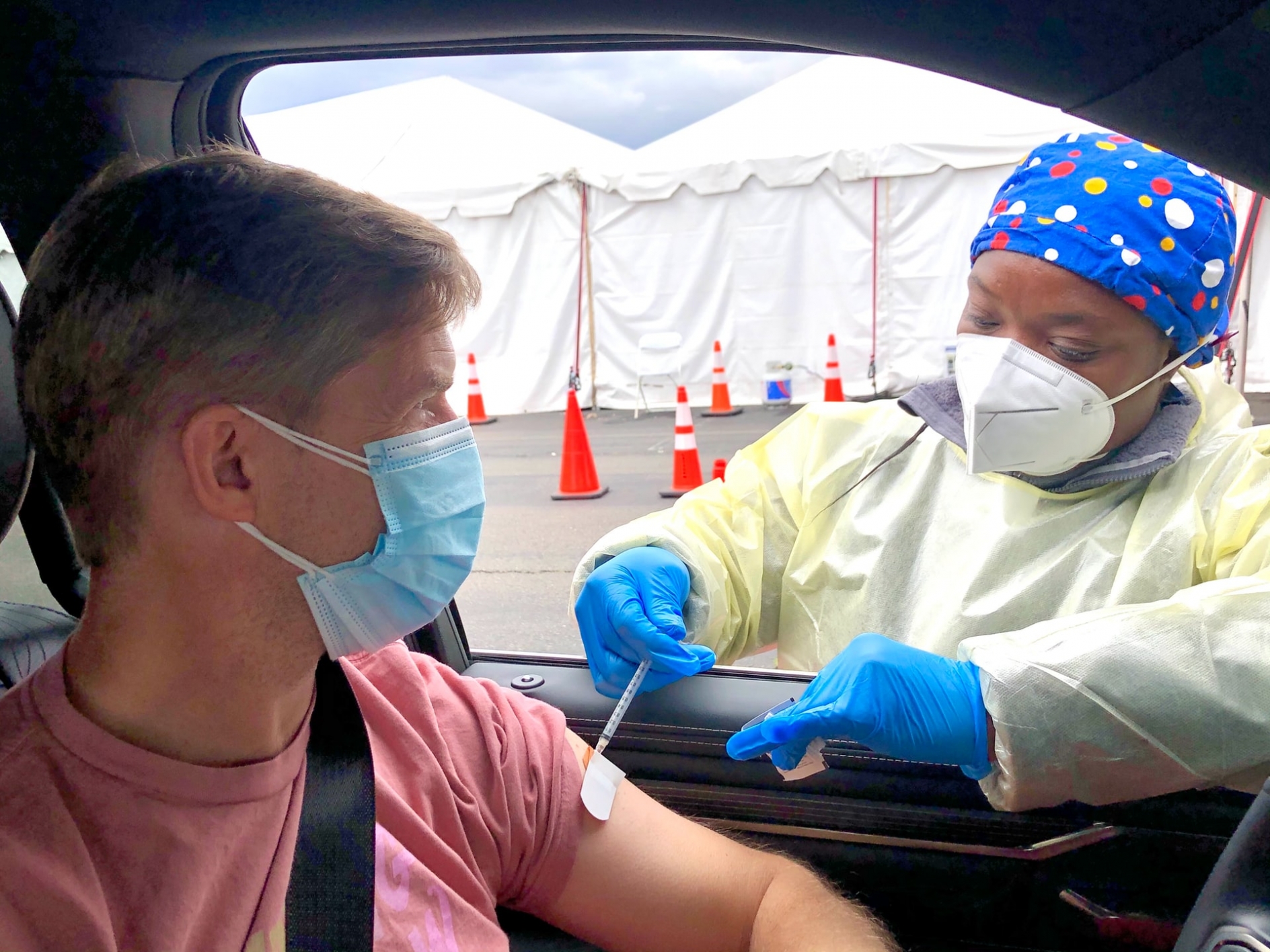Federal vaccination mandate set to start January 4
Contributors

Christian Scali
Businesses across the country that have 100 or more employees will need to require COVID-19 vaccinations for all employees or regularly test unvaccinated employees for the disease by January 4, 2022. On September 9, 2021, President Biden announced that he was directing the Department of Labor’s Occupational Safety and Health Administration to adopt Emergency Temporary Standards (ETS) on vaccination and testing, but did not announce a compliance deadline at that time. Now, business can get through the holidays without implementing the mandate, but will need to have it in place at the start of the New Year.
Who does this apply to?
If your business employs 100 or more people, it must comply with this mandate by January 4, 2022. This definition of employ counts each full and part time employee as a single employee, regardless of hours worked. It also counts all of the employees of affiliates, so if the combined employees of multiple affiliates is 100 or more, the parent company and its affiliates must comply. However, the ETS does not apply to employees who exclusively work from home, outdoors, or at a workplace that has no other employees or customers, though those employees still count towards the employee total.
What does the mandate require?
With limited exceptions, covered businesses must require that employees be fully vaccinated for COVID or regularly test for COVID starting January 4. To determine whether an employee is fully vaccinated, employers must obtain “acceptable proof” of vaccination status, which includes the following:
- A record of immunization from a health care provider or pharmacy
- A copy of the COVID-19 Vaccination Record Card
- A copy of medical records documenting the vaccination
- A copy of immunization records from a public health, state, or tribal immunization system
- A copy of any other official documentation that shows the type of vaccine administered, dates of administration, and name of the health care professional or provider that administered the vaccines
- When an employee is unable to provide the above, a signed and dated statement by the employee attesting to vaccination status, that they are unable to provide documentation, and a specific statement of accuracy specified in the text of the ETS

Employers must treat an employee who does not provide acceptable proof as not fully vaccinated. Employers must maintain records of each employee’s vaccination status and copies of the “acceptable proof.” This is a big departure from California law, which has to date only required attestation to vaccination status. However, if prior to this ETS an employer documented an employee’s fully vaccinated status through attestation or other proof, the employer need not go back and request “acceptable proof” from the employee.
Employers must also provide support for employees seeking vaccination. This includes providing employees with up to 4 hours paid time at the employee’s regular rate of pay to travel to and obtain a vaccine. It also includes reasonable time and paid sick leave to recover from side effects of vaccination.
Employees who are not fully vaccinated and who report to a workplace where coworkers or customers are present must test for COVID at least once every 7 days and provide documentation of test results no later than the 7th day following the last provided test result. If an employee teleworks or reports to a workplace less frequently than once every 7 days, the employee must test within 7 days prior to reporting to the workplace and provide documentation of the test result upon return.
The ETS states that it does not require employers to pay for these COVID tests, but notes that other laws may require employers to do so. For California employers, that almost certainly means that they will need to pay for COVID tests, as California law requires employers to pay for goods and services they require employees to use in most cases.
Finally, the ETS adopts the Cal/OSHA requirement that all unvaccinated employees must wear a face covering while indoors or inside a car with another person for work purposes. The only exceptions are when an employee is alone in a room with floor to ceiling walls and a closed door or when the employee is eating or drinking.
What should I do next?
Now is the time for employers subject to this ETS to develop their compliance plans. While the mandate kicks in January 4, every company will need to take steps before that date to be in compliance on time. With the holidays fast approaching, starting now is best option. Contact Scali Rasmussen today for help in designing a compliant plan to take your business into the New Year.
